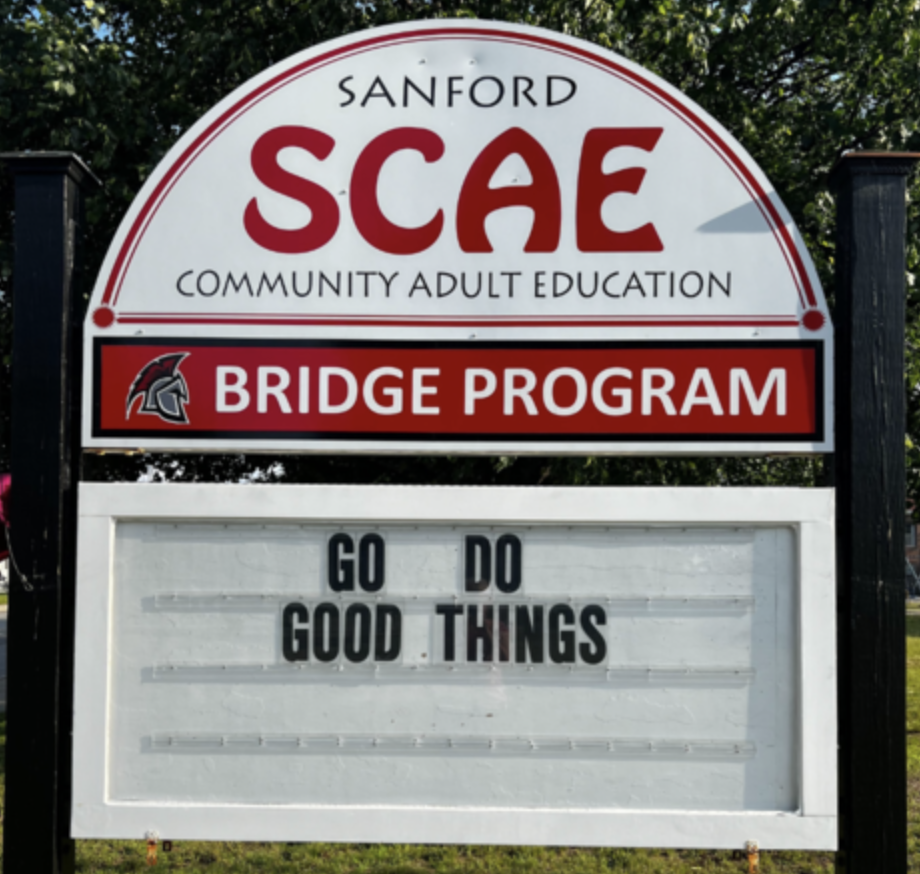For some students, the path to a diploma can feel overwhelming, filled with barriers that seem impossible to overcome. But at Sanford Community Adult Education, Director Jayne Perkins and her team are working to change that narrative. Through an innovative partnership with Maine Career Exploration and local businesses throughout Sanford, the program is creating real pathways to careers while helping students earn their high school credentials and develop essential life skills.
Sanford Community Adult Education is working with Maine Career Exploration to offer paid apprenticeships of up to 75 hours. Students earn money while gaining real-world work experience in fields that match their interests. The process is simple: employers complete paperwork, and within three days, students can begin their apprenticeship. Most students work three to four hours per week, allowing them to balance their education, work, and personal responsibilities.
Current and upcoming placements include the Downtown Shagg on Main Street, where a student will learn customer service and business operations, and Goodall Memorial Library, where one interested in library science will gain hands-on experience. The program is also exploring opportunities with local accounting firms and creative businesses for students interested in finance and digital art. Sue Zimmer, SCAE’s Maine College and Career Access Advisor, works to match students with opportunities and find the right fit. "I know my students, talk to them, start calling around and cross my fingers that someone will eventually say yes," she explains.
"For some of our students, this is literally their first time making money, or the first time in a long time," Zimmer notes. "This program is forcing them to not only get work experience but also get a bank account, get an ID—it's helping young people learn how to be adults." For a young person who has never had an ID or a bank account, this apprenticeship becomes more than just a job—it's a complete introduction to adulthood, with support every step of the way.
"Taking that first step is huge—walking through the door and saying 'I need my diploma’, it takes a lot of courage'" Perkins said. "These students get the opportunity and they get the support. It's the first time they've had such a positive opportunity, and to have someone walk them through it, step-by-step, give them the support. So they get the opportunity, and they get the support. And as you see in graduation, they find success most of the time. It’s life changing for them."
The programs are designed to meet students exactly where they are. The program's new website features Google forms where prospective students can share their contact information and interests. Since launching the online contact form, 29 students have reached out for information.
One recent conversation illustrates the program's impact. A 35-year-old woman kept saying she was too old to pursue her diploma. When Perkins told her, "You're not too old for this. Let's do this," they worked together to create a plan for her to graduate in June. The woman cried, grateful that someone believed in her. "So many times when I call, people say 'I can't believe that you're calling and that this is really happening,'" Perkins said.

